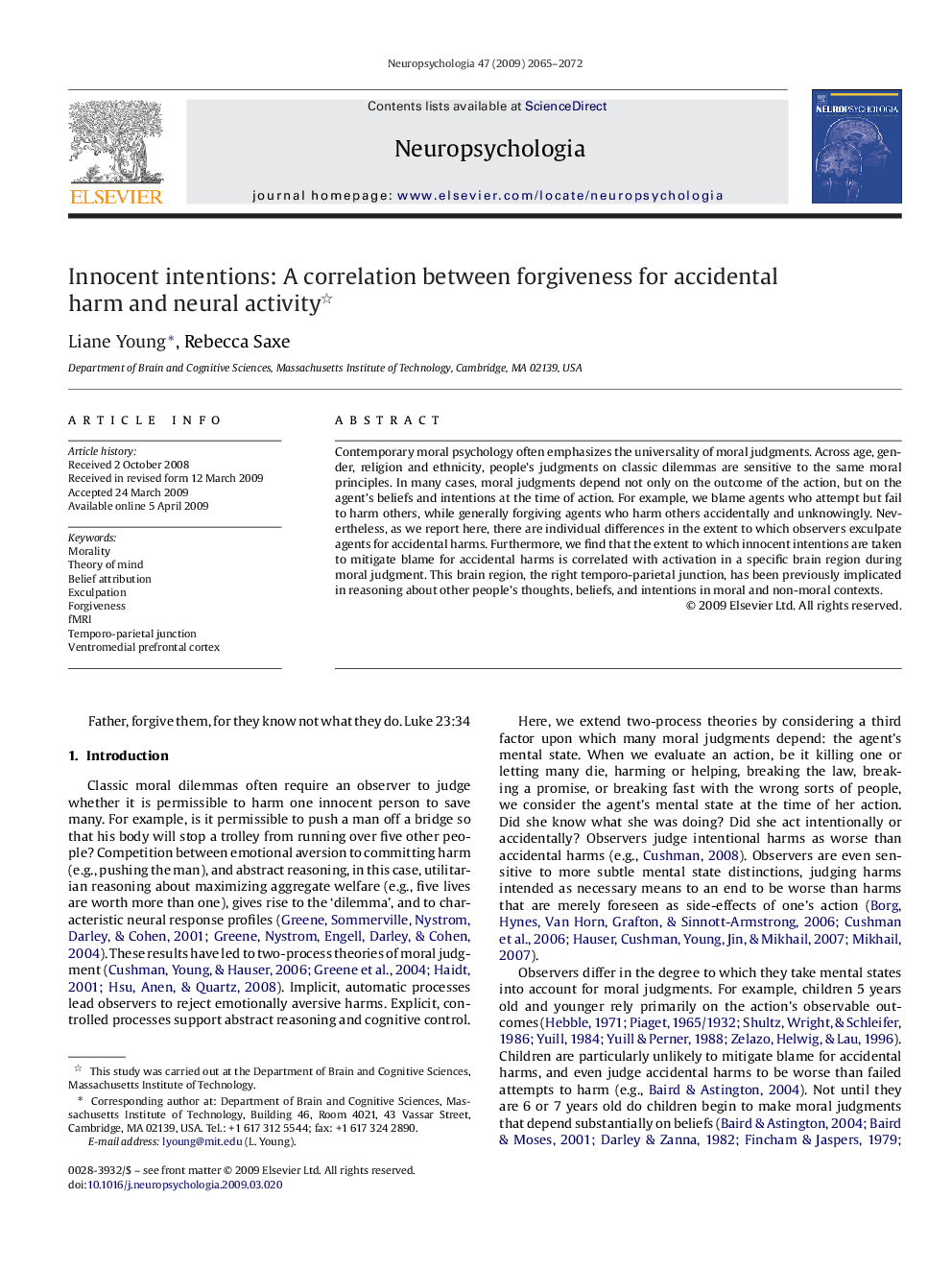| Article ID | Journal | Published Year | Pages | File Type |
|---|---|---|---|---|
| 945232 | Neuropsychologia | 2009 | 8 Pages |
Contemporary moral psychology often emphasizes the universality of moral judgments. Across age, gender, religion and ethnicity, people's judgments on classic dilemmas are sensitive to the same moral principles. In many cases, moral judgments depend not only on the outcome of the action, but on the agent's beliefs and intentions at the time of action. For example, we blame agents who attempt but fail to harm others, while generally forgiving agents who harm others accidentally and unknowingly. Nevertheless, as we report here, there are individual differences in the extent to which observers exculpate agents for accidental harms. Furthermore, we find that the extent to which innocent intentions are taken to mitigate blame for accidental harms is correlated with activation in a specific brain region during moral judgment. This brain region, the right temporo-parietal junction, has been previously implicated in reasoning about other people's thoughts, beliefs, and intentions in moral and non-moral contexts.
